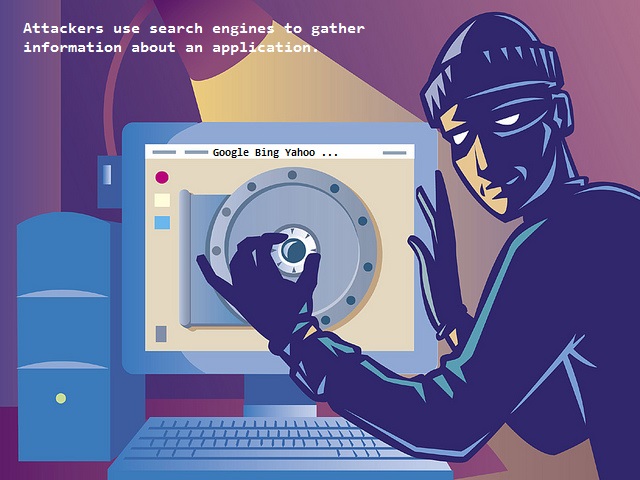Because Kogan obtained the data through legitimate channels,
由于科根獲取那些數據的渠道合法,
preventing such a scenario from happening again isn’t as simple as patching a bug or boosting Facebook’s security infrastructure.
要預防這種情況再次發生就不像修補一個漏洞或改善Facebook基礎安全設施那么簡單。
A fix would require Facebook to be stricter with its actual customers:
要解決這一問題,Facebook就得在篩選客戶時更加嚴格:
developers and advertisers of all kinds, from retailers to political groups, who pay to know what you have revealed about yourself.
各種開發商和廣告商,以及從零售商到政治團體所有付費購買用戶透露的關于他們自身的信息的人。
But it will need to keep a closer eye on who can see what, even if that results in repercussions for its other partners.
然而,他們也需要密切關注誰人能看哪些信息,即使這樣做會影響到其他合作伙伴。
Facebook invites you to chronicle your life through its platforms, especially your most cherished moments.
Facebook邀請大家通過他們的平臺記錄我們的生活,尤其是我們生活中最珍貴的那些瞬間。
There is a natural expectation that a space with such precious material will be guarded.
人們自然期望存放如此寶貴的資料的空間能夠得到安全保護。
As Zuckerberg said in a statement that in part pledged to restrict developers’ access to data:
扎克伯格在一份申明中承諾會限制開發人員的訪問權限,正如他在這份聲明中指出的那樣:
“We have a responsibility to protect your data, and if we can’t then we don’t deserve to serve you.”
“我們有責任保護大家的數據,如果做不到這一點,那我們就不配為大家服務。”

There’s another group in need of urgent introspection: users.
除了開發人員,還有一個亟需內省的人群:用戶。
In an era in which we tell companies like Facebook, Google and Amazon what groceries we eat, whom we’re in touch with and where we’re going (at a minimum),
在這個大家連吃哪家店的東西,和誰保持聯系,要去哪里(至少是這些)都會告訴Facebook,谷歌,亞馬遜之類的公司的時代,
users themselves need to actually demand to know to whom their information is being sent and how they will use it, in a way that is readable and accessible.
用戶自己也應該對平臺提出要求,以可讀并且可獲取的方式了解他們的信息發給了誰,那些人會怎么用他們的信息。
There’s no single obvious answer for preventing future data abuse,
如何防止未來再次出現數據濫用這一問題并沒有一個明顯的答案,
but one lesson is evident: Facebook needs to be more transparent with its users when their data is being exploited,
但有一個教訓是顯而易見的:數據被他人利用時,Facebook要對用戶更加透明,
and users themselves should be much more vigilant about the personal details they’re willing to share.
用戶自己也應該在分享個人信息的時候更加謹慎。
“It’s clear these platforms can’t police themselves,” Senator Amy Klobuchar posted to Twitter.
“很明顯,這些平臺并不能自我監控,”參議員埃米·克羅布查爾在她的推文中指出。
(Although even she expressed to Vice News Tonight skepticism that lawmakers will change the system ahead of this year’s elections,
(盡管連她都在《今夜惡新聞》中表示了對議員們將在今年的選舉之前改變制度的承諾的懷疑,
suspecting some will want one last election cycle with these tools in hand.)
她懷疑有人會想用這些工具贏得最后一輪選舉。)
Users may not invest in Facebook with cash.
用戶或許沒有用現金投資Facebook。
Instead, we offer invisible things: our emotions, our interests, our time and, in the end, our trust.
但我們拿出了無形的東西:我們的情感,我們的興趣,時間,歸根到底就是,我們的信任。
As Facebook asks for more and more of us as it expands, from its messenger apps to virtual reality to Instagram,
隨著Facebook越做越大,從通訊應用到虛擬現實到照片分享,它要求我們分享的東西也越來越廣,
we must ask, Why do we trust what we know so little about? Especially when what we do know is that the site profits off our interests?
我們就要問了,我們為什么要信任我們所知甚少的東西?尤其是我們知道該網站在犧牲我們的利益為自己牟利,我們為什么還要信任它?
We need to value our minds and lives at least as much as the advertisers and politicians do.
我們至少要像廣告商和政客重視我們的想法和生活一樣重視我們的想法和生活。
譯文由可可原創,僅供學習交流使用,未經許可請勿轉載。


